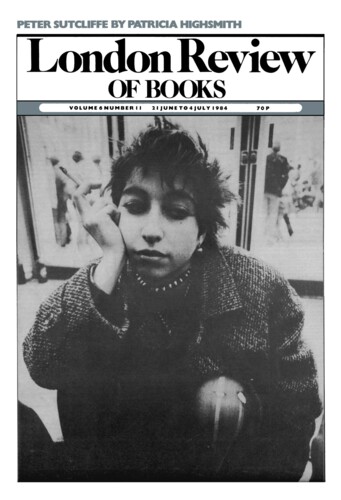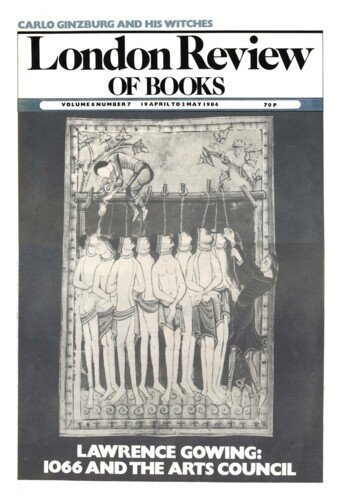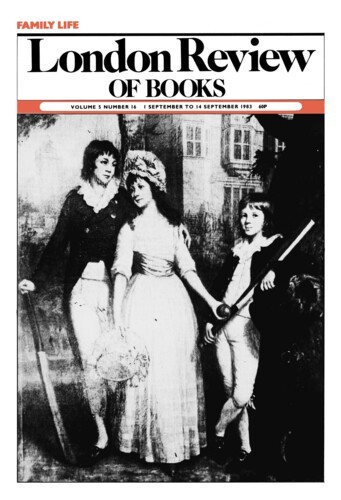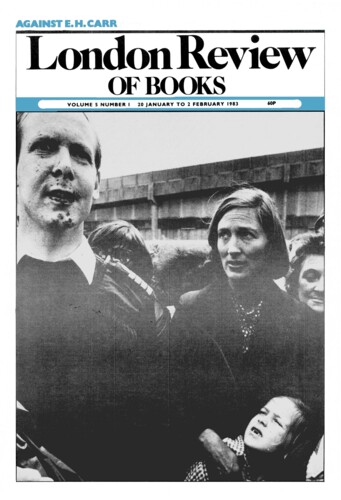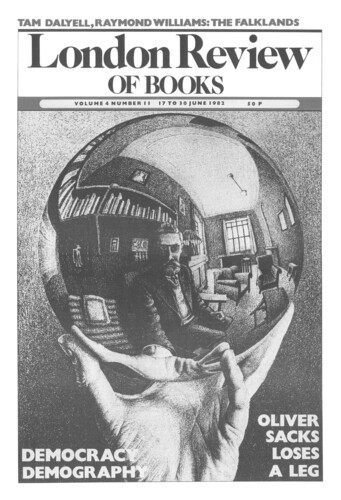Gellner’s Grenade
Rosalind Mitchison, 21 June 1984
This is a small book, but one of high density, both in ideas and, at times, in expression. Gellner’s field of concern is the modern world, and though occasionally he casts a look at Mediaeval Europe and Islam, it is in the 20th century that his interest lies, as does what evidence he can muster to support his themes. His view is simple and stark. Nationalism is not the product of history, in the sense that historical factors and institutions have shaped the cultures which have claimed national identity. It is the urge of particular groups to participate in a dominant and literate culture, and to have it linked with the administrative and educational machinery of a modern state. Historical development is then used to support this theory, not because history is a valid intellectual concern, but because it is a necessary part of the diagram which records the development of states as we know them.
